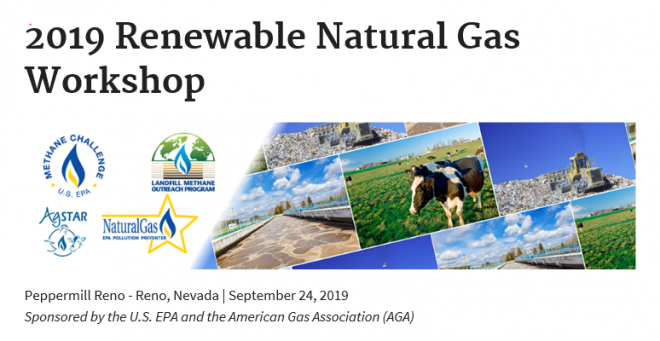Gus Simmons, Cavanaugh’s Director of Bioenergy, recently attended the third annual American Gas Association’s RNG Workshop in Reno, NV, whose attendance has grown in the last three years by leaps and bounds. It was gratifying to participate in the Renewable Natural Gas Workshop and see how interests in RNG are expanding broadly in the United States. This growth requires more and more innovative projects to overcome the significant historic hurdles to developing RNG sources, such as regulatory process (or lack of), lack of policy support, and securing financing.
The benefits of renewable natural gas are extraordinary. Utilizing local organic waste resources, we can harvest and repurpose anthropogenic carbon to make drop-in replacement natural gas from renewable resources. This organic recycling reduces the emission of carbon and greenhouse gases from both the displacement of fossil fuels and the discontinuance of emissions stemming from the natural decomposition of organic materials. In this regard, the conversion of waste organics into renewable natural gas is not just carbon-neutral; it offsets additional existing emissions. For these reasons, many sources of renewable natural gas are regarded to have the most attractive carbon intensity (CI) score by the CARB.
The Workshop program included topics such as the role of public utilities commissions with respect to RNG development, differing approaches to managing interconnections by state, strategies in interconnecting, technical feasibility and assessments, and new technology viability. Gus Simmons participated in a panel that discussed RNG interconnection guidelines, and improved strategies for developers and utilities in working together more constructively to efficiently evaluate and progress interconnection requests. You can view the Workshop presentations here.
While attending industry experts are well-aware of the benefits RNG offers to utilities and utility customers, many regulators, policy-makers, and even the general public are not. An unfortunate example is the current draft of the North Carolina Clean Energy Plan, which only referenced Renewable Natural Gas in minutes of stakeholder meetings, and had no mention of biogas or biomass projects for that matter. This from a state recognized as having the third richest biogas resources in the U.S., and one in which many industry leaders, such as Gus, have worked tirelessly to promote the development of RNG
Cavanaugh has been one of the movers and shakers in getting North Carolina and many other states to realize the value of recycling organic waste products. We hope the ‘spark’ initiated at the AGA RNG Workshop will be illuminated, and knowledge of biogas and how it provides environmental benefits will continue to spread across the U.S.


